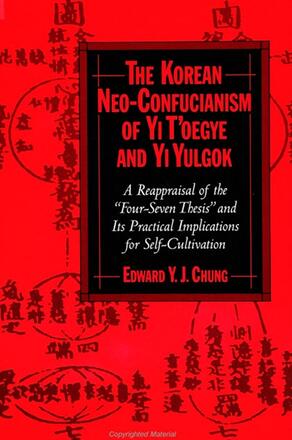
The Korean Neo-Confucianism of Yi T'oegye and Yi Yulgok
A Reappraisal of the 'Four-Seven Thesis' and its Practical Implications for Self-Cultivation
Alternative formats available from:
This is a study of the most significant debate in Korean Neo-Confucianism between the two most eminent Neo-Confucian thinkers, summarizing their philosophies and providing refreshing insights into Confucian language and culture.
Description
This comparative study of Yi T'oegye (1501-1570) and Yi Yulgok (1536-1584), Korea's two most eminent Neo-Confucian thinkers, is a seminal work on the Four-Seven Debate, the most significant and controversial intellectual event in the Korean Confucian tradition. The Four-Seven thesis, a magnificent example of East Asian Confucian discourse at its best, remains each thinker's masterpiece, a compressed but integrated systemization of metaphysics, ethics, and spirituality. It addresses fascinating philosophical, moral, and psychological questions about the fundamental problem of feelings and emotions, as well as their implications for moral and spiritual self-transformation.
This book is indispensable for those interested in Korean thought or intellectual history. It will enable specialists in Confucian studies to understand unique paradigms of Korean Neo-Confucianism. It will stimulate comparative philosophers or religionists and general humanists to consider Korean Neo-Confucianism seriously as a major resource for understanding East Asian philosophy and religion.
Edward Y. J. Chung is Assistant Professor of Religion and Asian Studies, University of Prince Edward Island.